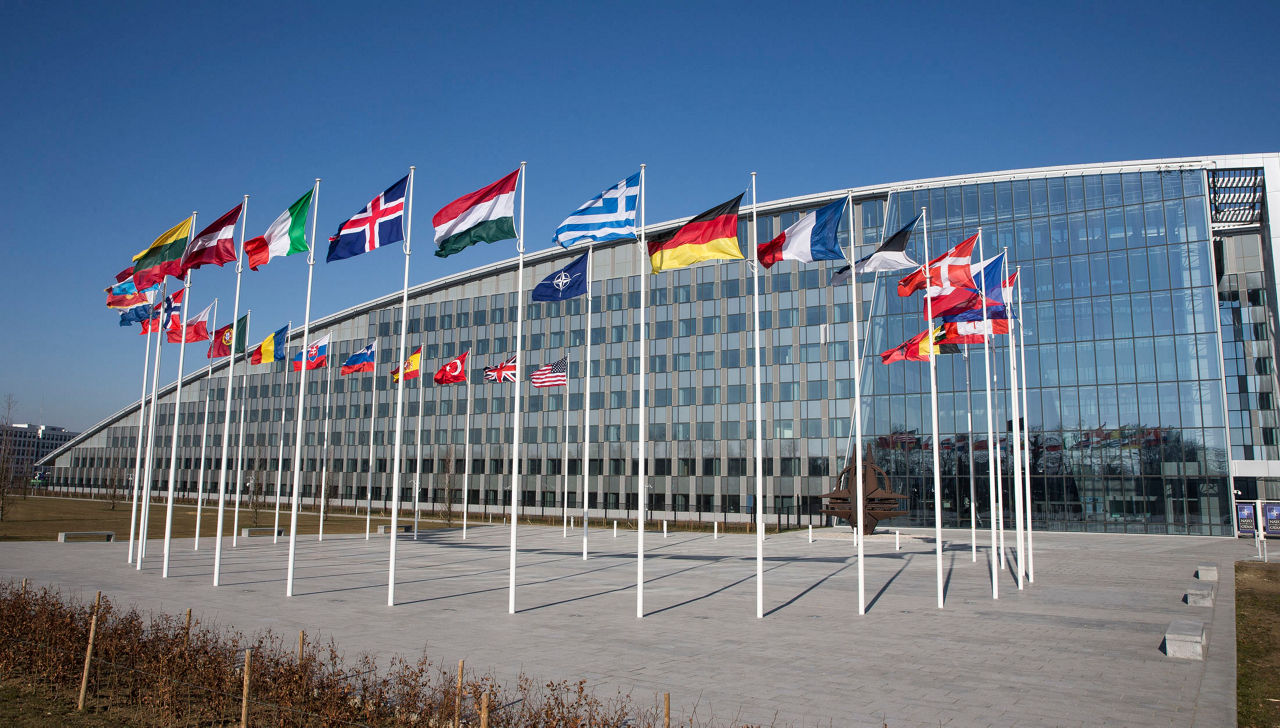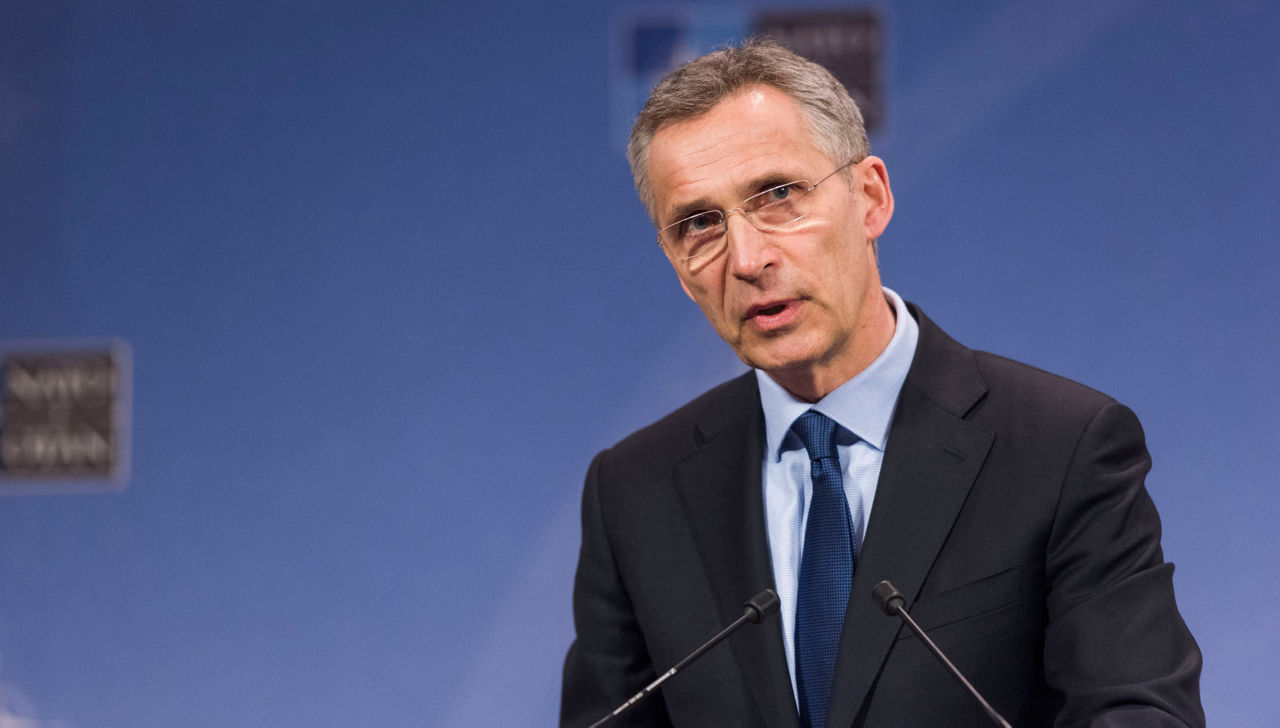Download NATO’s broadcast-quality video content free of charge

Log in
NATO MULTIMEDIA ACCOUNT
Access NATO’s broadcast-quality video content free of charge

Check your inbox and enter verification code
You have successfully created your account
From now on you can download videos from our website
Subscribe to our newsletter
If you would also like to subscribe to the newsletter and receive our latest updates, click on the button below.
Enter the email address you registered with and we will send you a code to reset your password.
Didn't receive a code? Send new Code
The password must be at least 12 characters long, no spaces, include upper/lowercase letters, numbers and symbols.
Your password has been updated
Click the button to return to the page you were on and log in with your new password.
Позиція НАТО щодо Договору про ліквідацію ракет середньої і меншої дальності (РСМД)
Updated: 09 July 2019
Договір про ліквідацію ракет середньої і меншої дальності (РСМД ) має ключове значення для євроатлантичної безпеки. Завдяки йому було ліквідовано цілий клас ядерної зброї, що становила загрозу для Європи в 1980-х роках. Усі держави – члени НАТО поділяють думку про те, що розробка і розгортання Росією ракетного комплексу відомого як SSC-8 або 9M729 є порушенням Договору РСМД і становить істотну загрозу безпеці Альянсу. Держави – члени Альянсу знову закликають Росію повернутися до повного і достовірного виконання Договору. Водночас НАТО готується до обставин, за яких світ може втратити Договір РСМД.
Позиція НАТО щодо ключових подій
Договір РСМД був підписаний 8-го грудня 1987 р. Сполученими Штатами і Радянським Союзом і набув чинності 1-го червня 1988 р. Він зобов'язував обидві країни ліквідувати свої балістичні і крилаті ракети наземного базування, які мали радіус дії від 500 до 5500 кілометрів (від 300 до 3400 миль), до 1 червня 1991 р.

Посол Ейлін Маллой (керівник групи з контролю на озброєннями при посольстві США в Москві) на об'єкті з ліквідації ракет в Сариозеку на початку 1990 р.
До зазначеного терміну ці дві країни сукупно ліквідували 2692 ракет меншої та середньої дальності: 1846 ракет з боку Радянського Союзу та 846 – США. Це стало першим прикладом ліквідації цілого класу озброєнь, які здатні нести ядерні боєголовки.
Але в останні роки Росія розробила, продукувала, випробувала и розгорнула нову ракету середньої дії, відому як 9M729 або SSC-8. Ракета 9M729 відзначається мобільністю; її легко сховати. Вона здатна нести ядерний боєзаряд. Термін попередження даної ракети зменшено до хвилин, що знижує поріг для виникнення ядерного конфлікту. Вона може також досягати європейських столиць.
В ліпні 2018 р. члени Альянсу заявили, що після того, як Російська Федерація роками вдавалась до заперечень та маскування фактів, і попри неодноразово висловлені занепокоєння країн НАТО, Росія лише нещодавно визнала існування вказаного ракетного комплексу; до того ж вона не забезпечила належної відкритості і не надала необхідних пояснень з цього приводу. Багаторічні закономірності поведінки РФ та відповідна інформація з даного питання викликали поширені сумніви щодо виконання цією країною своїх зобов’язань в межах Договору РСМД. Члени Альянсу зауважили, що з огляду на відсутність достовірної відповіді з боку Росії щодо нової ракети, найбільш вірогіднім є припущення, що ця країна порушує вказаний Договір.
В грудні 2018 р. міністри закордонних справ НАТО підтримали висновки США, які вказують на те, що Росія суттєво порушує свої зобов’язання за Договором РСМД, і закликали її повернутися до повного і достовірного виконання положень Договору.
Члени Альянсу незмінно готові до діалогу і залучають Росію до врегулювання даного питання, прикладом чого було, зокрема, засідання Ради НАТО-Росія, яке відбулося 25 січня 2019 р. Проте Росія і далі заперечує факт порушення нею Договору РСМД, відмовляється дати будь-яку достовірну відповідь і не вживає жодних дієвих заходів для відновлення повного і достовірного виконання Договору.
В результаті подальшого порушення Росією Договору РСМД, 1 лютого 2019 р. Сполучені Штати заявили про рішення призупинити виконання своїх зобов’язань за статтею XV вказаного Договору. Це означає, що Сполучені Штати можуть розірвати Договір протягом шести місяців від вказаної дати, якщо Росія не повернеться до його виконання.
Також 1 лютого 2019 р. члени Альянсу НАТО заявили, що у разі, якщо РФ не продемонструє свою повагу до зобов’язань в межах Договору РСМД шляхом достовірної ліквідації усіх своїх ракетних комплексів 9M729 і – відповідно – повернення до повного та достовірного виконання його положень, Росія нестиме цілковиту відповідальність за припинення його дії. Члени Альянсу також чітко заявили, що НАТО і далі ретельно аналізуватиме безпекові наслідки, які створює наявність у Росії ракет середньої дії, і вживатиме необхідних заходів для забезпечення дієвості та ефективності своєї політики стримування і оборони.
15 лютого 2019 р., під час Мюнхенської конференції з безпеки, Генеральний секретар НАТО Єнс Столтенберг пригадав: “Саме з цієї трибуни, на Мюнхенській конференції з безпеки 2007 року, – саме тут Президент Путін вперше публічно заявив про своє бажання щодо виходу Росії з Договору РСМД. Договір, який поважає лише одна сторона, не дасть нам безпеки”.
Альянс робитиме все в межах своєї відповідальності, аби Росія відновила виконання Договору до 2 серпня 2019 р. НАТО націлене на збереження Договору РСМД.
26 червня 2019 року Міністри оборони НАТО вкотре закликали Росію відновити повне та достовірне виконання Договору. У разі, якщо цього не станеться, вони також розглянули можливість запровадження заходів у таких галузях, як навчання, розвідка, спостереження і рекогностування, протиповітряна та протиракетна оборона й розбудова спроможностей звичайних збройних сил. До того ж буде забезпечено, щоб система ядерного стримування НАТО залишалася надійною, безпечною та ефективною й у майбутньому.
Міністри оборони підтвердили, що НАТО не має наміру розміщувати нові ядерні ракети наземного базування у Європі. НАТО не наслідуватиме приклад Росії і не прагне нової гонки озброєнь.
Члени Альянсу неухильно прагнуть збереження ефективного міжнародного режиму контролю над озброєннями, роззброєння та нерозповсюдження.
"Розгорнувши численні дивізіони ракет SSC-8, Росія зробила світ значно небезпечнішим".
Єнс Столтенберг, Генеральний секретар НАТО
Ракети, що заборонені за Договором РСМД

Радянський інспектор оглядає крилату ракету наземного базування BGM-109G перед її ліквідацією. (1988 р.)
За Договором РСМД Сполученим Штатам та Росії забороняється виробляти крилаті ракети наземного базування, які мають радіус дії від 500 до 5500 кілометрів, чи проводити льотні випробування таких ракет, а також мати у своєму розпорядженні або виробляти пускові установки для таких ракет.
Договір РСМД містить чіткі визначення заборонених балістичних та крилатих ракет наземного базування:
- Балістичною ракетою середньої дальності вважається балістична або крилата ракета наземного базування, яка має радіус дії від 1,000 до 5,500 кілометрів. Термін "балістична ракета" означає: ракета, більша частина польоту якої здійснюється за балістичною траєкторією.
- Ракетою меншої дальності вважається балістична чи крилата ракета наземного базування з радіусом дії від 500 до 1000 кілометрів. Термін "крилата ракета" означає: безпілотний, оснащений власним двигуном засіб, політ якого вздовж більшої частини його траєкторії здійснюється шляхом використання аеродинамічної підйомної сили.
Історія питання
- 8 грудня 1987 р.: підписання Договору РСМД.
- 11 травня 1991 р.: ліквідація останніх ракет, що підпадають під дію Договору.
- 23 травня 2013 р.: Сполучені Штати вперше висловлюють Росії своє занепокоєння щодо вказаного ракетного комплексу.
- 5 вересня 2014 р.: Уельський саміт: члени Альянсу закликають Росію зберегти життєздатність Договору РСМД
- 9 липня 2016 р.: Варшавський саміт: члени Альянсу закликають Росію дати відповідь на звинувачення Сполучених Штатів та зберегти життєздатність Договору РСМД
- 9 грудня 2017 р.: Росія визнає існування ракетного комплексу SSC-8/9M729, але стверджує, що він не порушує Договір РСМД.
- 11 липня 2018 р.: члени Альянсу НАТО заявляють про імовірне порушення Росією Договору РСМД.
- 20 жовтня 2018 р.: Сполучені Штати оголошують свій намір припинити дію Договору РСМД.
- 4 грудня 2018 р.: Сполучені Штати заявляють про суттєве порушення Договору з боку Росії.
- 4 грудня 2018 р.: Міністри закордонних справ НАТО підтримують висновки США щодо порушення Договору з боку Росії.
- 25 січня 2019 р.: на засіданні Ради НАТО-Росія члени Альянсу закликають РФ повернутись до виконання Договору.
- 1 лютого 2019 р.: Сполучені Штати оголошують своє рішення призупинити виконання Договору РСМД.
- 1 лютого 2019 р.: члени НАТО виступають з заявою про невиконання Росією Договору РСМД.
- 14 лютого 2019 р.: Міністри оборони НАТО знову закликають Росію повернутись до виконання Договору РСМД.
- 26 червня 2019 р.: Міністри оборони Альянсу вирішують, що НАТО відреагує у разі, якщо Росія продовжуватиме порушувати Договір РСМД і визначають потенційні заходи з боку НАТО.



